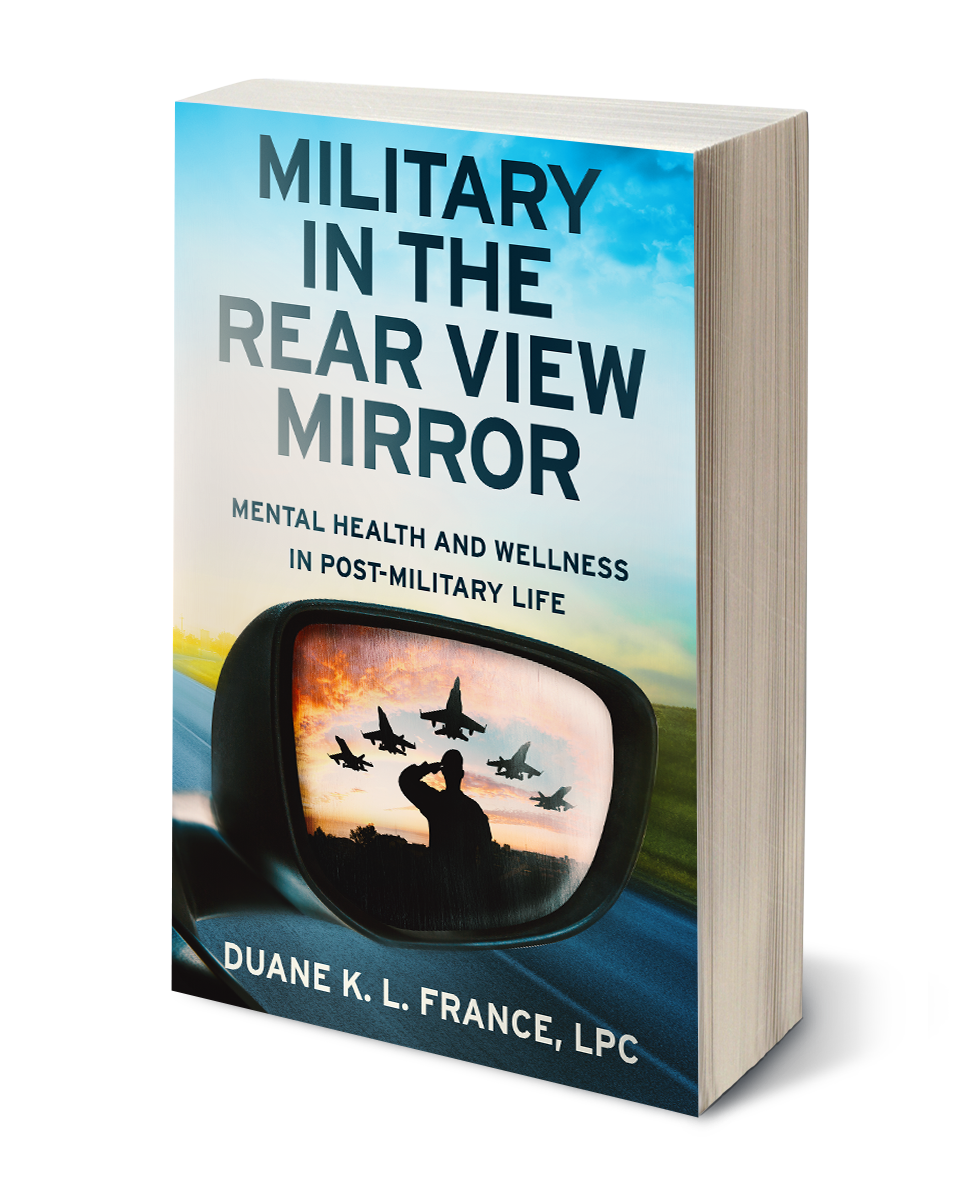
The U.S. Air Force Thunderbirds Demonstration Team performs precision aerial maneuvers June 30, 2018. (U.S. Air Force photo by Alejandro Peña)
2020 was a strange and difficult year for many, if not most, of us. It was challenging for our mental health, physical health, social health, economic health…it was hard in so many ways. It was also a year of a break from writing for me; at the end of 2019, I realized that I was stretching myself pretty thin. I had written three books in three years, all of them collected from these blogs, and realized that my seven jobs were getting to be a bit much.
I was also concentrating on a year-long podcast project, Seeking the Military Suicide Solution. This was a time-limited series of fifty conversations with a wide range of subject matter experts on the topic of suicide prevention in the military affiliated population. That project, which can be listened to here, was brought to a successful conclusion a few days ago. And I will continue to produce and host podcasts, with at least one project for PsychArmor in development and possibly more.
As we move into 2021, however, I’m putting my writing shoes back on and taking my thoughts and ideas for a stroll again. Here is a new year-long project I’m asking you to join me on: a series looking at the various paradoxes that service members and veterans experience. I’ve written about a number of paradoxes before, and highlighted the research on combat veteran paradoxes that list more of them, but as I continue my clinical work, I realize that there are many, many more to explore.
What Is a Paradox
To start with, I thought it might be helpful to define a paradox. It’s one of those words that folks are familiar with but might not mean what we think it means. Here is the dictionary definition:
Par·a·dox /ˈperəˌdäks/ noun: a seemingly absurd or self-contradictory statement or proposition that when investigated or explained may prove to be well founded or true.
A paradox is something that seems like there is no way that it could be true. Like the Combat Addiction paradox: I hate war, but I love combat. Both of those things are true, but they seem like they shouldn’t be. We come up against a lot of these situations in our lives; if we want peace, we should prepare for war. We have to spend money to make money. Less is more. We are faced with these contradictory statements and take them for granted…but they have deeper meanings. And for service members, veterans, and their families, there is a whole set of paradoxes that we experience.
Why Is It a Problem
So paradoxes exist all around us…why is it a problem? In this specific case, it is because unnoticed and unresolved paradoxes can cause difficulty in our lives. The Back There paradox referenced in the research above: when we were in combat, we thought about how great it would be to get back home. When we got home, however, many of us were obsessed with thoughts of getting back to combat. When we’re home, safe, and surrounded by people we care about, why would we want to get away from them? This causes tension within ourselves, with those around us, and can lead to withdrawal and disrupted relationships.
As a practicing therapist, I see my clients struggle with paradoxes daily. Sometimes they feel like they have to be cruel to be kind…push their loved ones away to spare them from even more pain in the future. The angry healer paradox: I really can’t stand being around people, but I want to help everyone at the same time. Often, the paradox they face is a result of shifting from military culture to post-military life: in the military, we were used to immediate feedback, good or bad. Post-military life is filled with ambiguity.
How to Solve the Problem
One of the things that I have seen most helpful with my clients is when they resolve these paradoxes. When they recognize that both contradictory elements of these statements are true. They are given equal measure, there is balance. It can be okay to hate war and love combat…there is nothing wrong with it. Just because we love combat doesn’t mean we have to engage in it. And in this sense,”combat” doesn’t mean “conflict”…combat was the tactical deployment of a specific set of skills learned in the military. Conflict is starting arguments with everyone around us. We can love combat while avoiding conflict.
We solve the paradox problem by resolving the paradox and coming to terms with reality. My goal over the next year is to present a series of these paradoxes in an attempt to help to resolve them. Some of them may hit the mark for you. Some of them may fall flat…not everyone experiences all of these paradoxes. In my experience, however, many experience most of them.
Thank you, as always, for reading and following along. You can see all the articles in the series here if you want to read the posts produced so far. If you’re not already signed up for our newsletter, make sure to sign up to receive updates to keep up with the articles throughout the year. And as always, remember, you’re not alone…ever.
Do you want to help offset some of the costs of the Head Space and Timing Blog and Podcast? Want to show your appreciation and support? You can put some paper in the tip jar by going here or clicking the button below



3 Comments
The Modesty Paradox — Head Space and Timing · January 6, 2021 at 6:12 am
[…] post is part of a year-long series, The Paradox Problem. You can go here to see the introduction to the series, and see all the articles in the series […]
The Survivor's Guilt Paradox — Head Space and Timing · January 13, 2021 at 4:48 am
[…] post is part of a year-long series, The Paradox Problem. You can go here to see the introduction to the series, and see all the articles in the series […]
The Courage Paradox — Head Space and Timing · January 27, 2021 at 5:03 am
[…] post is part of a year-long series, The Paradox Problem. You can go here to see the introduction to the series, and see all the articles in the series […]
Comments are closed.